How Long Does a Bankruptcy Stay On My Credit Report?
by Luke Homen
When you decide to file bankruptcy, it’s important to think about your long-term goals and plans. It’s not just about discharging your debt—you must also think about how your bankruptcy will affect you in the years to come. Each type of bankruptcy has different reporting requirements, and knowing what to expect can help you plan appropriately. Navigating the intricacies of bankruptcy proceedings requires careful consideration of both immediate needs and long-term implications.
At Convenient Bankruptcy, every single client who retains us for bankruptcy services will be enrolled in a free-to-the-client credit building program once they receive their discharge!
Types of Bankruptcy and Their Reporting Periods
There are two main types of bankruptcy for individuals. Chapter 7 is the more commonly sought out option, requiring the liquidation of non-exempt assets to pay creditors. It results in your qualifying debts being discharged just months after your filing date. This type of bankruptcy will remain on your credit report ten years from your filing date.
Chapter 13 bankruptcy restructures your debts in a way that pays off your secured debt in full and part of your unsecured debt. The payment plan lasts three to five years. This type of bankruptcy remains on your credit report for seven years after you file.
Consulting with an experienced bankruptcy lawyer can provide invaluable insights into how different types of bankruptcy may impact your financial future, ensuring you make informed decisions aligned with your long-term goals and plans.
Timing of Bankruptcy Reporting

After your bankruptcy is filed, your credit report will look very confusing until your bankruptcy is discharged. This is because different creditors using different credit reporting software, and each different credit reporting software handles a pending bankruptcy in a different way. We recommend you ignore your credit report until you receive your bankruptcy discharge.
Once you receive your discharge, it’s important to keep a watchful eye on your credit report. If any of the credit bureaus accidentally report the wrong filing date or use the discharge date, your debts could affect your credit for longer than necessary.
And if the creditor refuses to report that you’re no longer responsible for the debt, you could actually gain the right to sue the creditor for a violation of the FCRA — the Fair Credit Reporting Act! So it’s very important to work closely with an experienced bankruptcy attorney who is well-versed in credit reporting.
Effects of Bankruptcy on Credit Score
Be prepared: your credit score may drop after you file for bankruptcy. Credit reporting is complex, and different for each person. Most people who file for bankruptcy have too much debt for their income level, or have been missing payments, and as a result, already have a low credit score that can’t drop any lower. However, if you have a great credit score and something tragic and terrible recently happened to you, then it’s likely your credit score will drop — at first.
But this is temporary and your credit score will recover with time! Many factors affect how much your credit score drops. For example, how well were you managing your debts before filing? If you were managing to make all minimum payments on time and had no accounts in collections, you might see a steeper decrease. If you had multiple accounts in collections and were months behind on payments, your credit score may see a smaller drop.
How can you help your credit score recover after bankruptcy? You have to use credit carefully and strategically. This means not letting it build up, paying credit cards off in full, and prioritizing on-time payments. Many banks offer secured credit cards and other options specifically for those who have filed for bankruptcy.
Remember, too, that your credit report may include more than just dischargeable debt. If you have student loans, keeping up with payments can help your credit recover. Some service providers, such as cell phone providers and utility companies, also report to credit bureaus.
For more detailed and personalized recommendations, we recommend that you hire a credit building program after you file bankruptcy. At Convenient Bankruptcy, every single client who retains us for bankruptcy services will be enrolled in a free-to-the-client credit building program that is designed to bring your score to a 720 or better!
Credit Report After Bankruptcy
Monitoring your credit report should be a top priority after bankruptcy. It is all too common to find accounts that should not be listed on your report, and those accounts can further harm your credit score. Discharged accounts listed on your credit report after bankruptcy should show a zero balance. If they don’t, you may need to dispute them with the credit bureau.
Disputing is fairly easy, since all three credit bureaus allow you to dispute incorrect entries online. You can dispute online with Equifax, Experian, and TransUnion. Note that you must create an account with TransUnion to access the form.
If your dispute is approved, watch your credit report in the months that follow to ensure that the account in question is removed and does not reappear.
Ensuring the accuracy of your credit report post-bankruptcy is crucial for rebuilding your financial health. If discrepancies arise, seeking assistance from a knowledgeable bankruptcy attorney at Convenient Bankruptcy can streamline the dispute process and help safeguard your credit score for the future.
At Convenient Bankruptcy, we connect every single client who retains us for bankruptcy services with a free credit report review once they receive their discharge!
Long-Term Financial Planning Post-Bankruptcy
Rebuilding your credit history is a big part of planning for your financial future after bankruptcy. You can do this by minimizing the amount of new accounts you take on, keeping your credit card usage below 30%, and making all payments on time. Reasonable credit utilization and on-time payments make up a significant portion of your credit score, so just these two habits can make a big difference.
It’s also important to avoid getting back into debt. Set aside money from each paycheck so you can build a healthy emergency savings account. Should you need vehicle repairs, emergency medical care, or a hotel room when your heat goes out, you won’t need to rely on a credit card. This, in conjunction with a healthy budget, can keep you out of the cycle of debt.
When you file bankruptcy, you will be required to take an online class on money management and budgeting. With new financial tools in your pocket, you will be ready to build a better financial future for yourself and your family!
Other Considerations
As you start moving forward after bankruptcy, remember that it may take time for you to qualify for the loans and credit cards you would have been offered before. Creditors may be wary of taking chances on someone with a recent bankruptcy. However, with loan and credit options designed for those who have filed for bankruptcy, you can still use debt in a healthy way to rebuild your credit.
In some situations, your bankruptcy filing may affect your employment and housing opportunities. Jobs in the financial sector and careers that require a security clearance are often not open to those who have a lot of debt. Some security clearance officers have actually told our clients that their clearance won’t be renewed if they don’t pay their debts or file bankruptcy — because too much bad debt is a security risk!
While many landlords do not check credit scores, there are some who may not want to rent to someone with a low credit score or a recent bankruptcy. You may wish to have your living arrangements lined up before you file. That way, you won’t have to worry about housing until your debts and your credit score are better than ever!
Ready to find out how bankruptcy could change your future? Convenient Bankruptcy is a phone call away. Call us at 405-296-0069 or reach out to the Oklahoma bankruptcy lawyers at Convenient Bankruptcy online.

Attorney Luke Homen is the President of Convenient Bankruptcy. He placed great value on helping individuals and families solve their financial challenges and achieve real financial freedom. His goal is to find a customized solution that fits each client’s unique situation. Luke has been practicing law since 2008, and was voted “Best Bankruptcy Attorney in Oklahoma” by The Oklahoman in the Reader’s Choice Awards.
